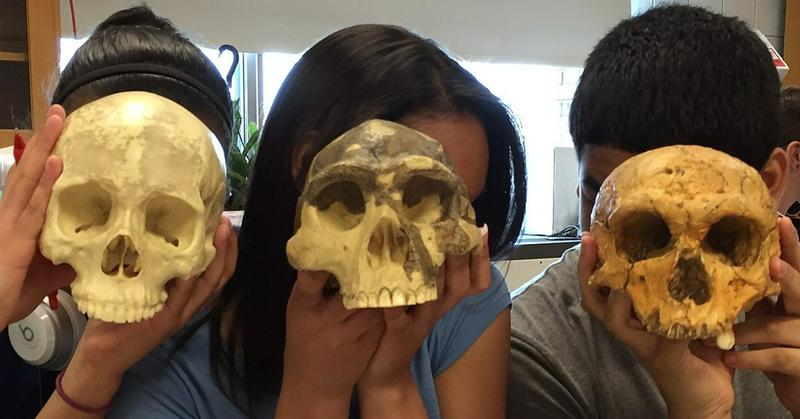Human Evolution: Things You Didn't Know About How We Evolved
By | February 4, 2021

Most people know the basics of human evolution: We walk on two legs, we're not covered in coarse hair, and he have opposable thumbs we can use to change the channel and smack the space bar. But there are so many tiny evolutionary changes that have affected the human race (and still affect us today) that we don't really think about.
Men With More Testosterone Are No Longer The Best Mates
The convention wisdom of evolutionary psychology is that men with features that signal high testosterone levels are more attractive to women seeking a mate in the most literal sense because they're more likely to be better providers. That might have been true in the good old days, when "providing" mostly entailed throwing sharp sticks, but that appears to be changing. In 2013, a group of researchers came to the conclusion that testicular volume and high testosterone levels were in direct opposition to human fathers' parenting effort in the modern era. The study found that men with high testosterone were more likely to involve themselves in "precopulatory, intersexual competition" but less likely to take part in the day-to-day work of taking care of their children.

Our Jaws Are Shrinking
Apparently, humans used to have huge jaws, but over the last 30,000 years, they've been shrinking. Part of the reason is shifts in dietary practices, especially toward processed or otherwise softer foods that don't require big, meaty jaws to chew, but also because our bodies in general have gotten smaller. That's why most people have to have their wisdom teeth removed: Once upon a time, there was plenty of space for them to grow in without issue, but now, they're usually forced to painfully crowd the rest of the teeth (which have also become smaller) if left untreated.

We're Getting Colder
It's something we've all had drilled into us from the moment we became responsible for monitoring our own temperatures: Normal human body temperature is 98.6 degrees Fahrenheit. It can be a little lower or higher without sending anyone to the emergency room, but that's the norm—at least, it was in 1868. Now, the average core temperature of a human being is 97.9 degrees Fahrenheit. In fact, human body temperatures have been dropping .05 degrees Fahrenheit every decade. It's not entirely clear what's causing the cooling, but researchers believe higher standards of living and better medical care have resulted in less chronic inflammation, which raises body temperature.

Our Bones Are Becoming Less Dense
Researchers believe that the spongy tissue at the end of our femurs, known as trabecular bone tissue, was once much thicker, but after we stopped roaming the woods in search of food and shelter, we no longer needed those kinds of heavy, extra-durable bones. As a result, our bones started growing weaker about 12,000 years ago, right around when we started farming more and hunting less. That change in diet and activity caused our bones to grow lighter, and it didn't matter whether the specimens scientists examined came from "people who lived in an industrial society or agriculturalist populations that had a more active life." The good news is that means it's not your fault for sitting around all day, although scientists believe the trend will probably continue as humans become more sedentary. The bad news is that bones break regardless of whose fault it is.

We're Getting Better At Eating Cheese
It's not all bad news: Everyone you know might rush to the toilet following a good fondue, but fewer people are actually lactose intolerant today than in ancient Europe. Back then, the enzyme that allows infants to digest milk stopped working in just about everybody's bodies when they reached adulthood, but over the last 20,000 years, more and more people just kept on enzyming. Now, 35% of the global population can enjoy milk whenever, and no one is sure why. One theory is that in times of famine, people without dietary restrictions, such as those who could digest milk, were more likely to survive and pass on their genes because they could eat whatever was available without poisoning themselves. Combined with better technology for treating dairy, we're in a golden age of creaminess.

